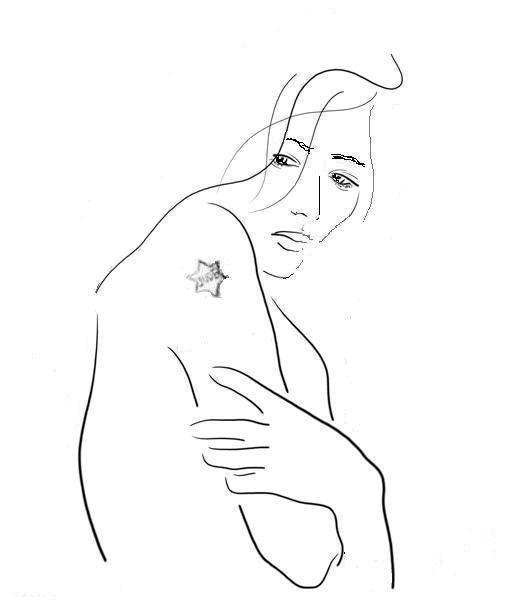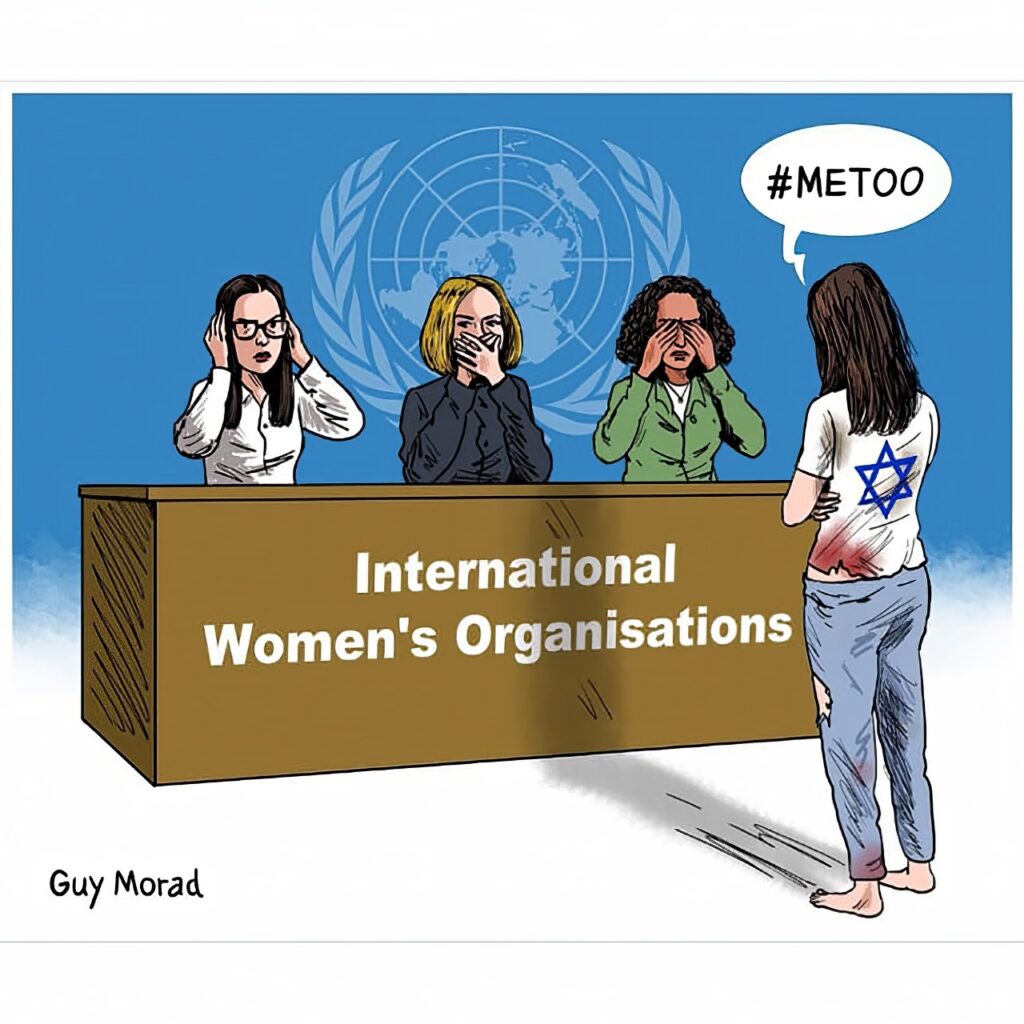Where are the Women’s Voices?
by Bev Goldman, President of our South Africa affiliate, the Union of Jewish Women.
Rape and other forms of sexual violence are prohibited under international humanitarian haw in all armed conflicts. Humanitarian law also clearly prohibits rape in internal conflicts. Rape committed or tolerated by any party to a non-international conflict is prohibited by Common Article 3 of the Geneva Conventions insofar as it constitutes “violence to life and person,” “cruel treatment,” “torture” or “outrages upon personal dignity.
In 1995, the UN’s Fourth World Conference on Women specified that rape by armed groups during wartime is a war crime. In a landmark case in 1998, the International Criminal Tribunal for Rwanda ruled that “rape and sexual violence constitute genocide.” In 2008, the U.N. Security Council adopted Resolution 1820, which stated that “rape and other forms of sexual violence can constitute war crimes, crimes against humanity or a constitutive act with respect to genocide”.
Fast forward to 7th October, 2023, a date that will remain in the minds and memories of the Jewish people for all time. A day during which unspeakable, horrific, brutal, savage and monstrous actions against Israeli women and girls were carried out with glee and delight by the members of Hamas, the Palestinian “freedom fighters”, those “resisting the inhumane occupation of Gaza and the West Bank”, those who aim “to free Palestinian prisoners, stop Israeli aggression on al-Aqsa Mosque, and to break the siege on Gaza.”
But that was not enough for them. After massacring hundred of young Israelis at a music festival, they proceeded to rape those who were still alive, to violate and torture them, to defile, mutilate and soak them in blood and then to shoot them at point-blank range – and afterwards to take selfies of themselves next to or even cradling the bodies of their victims, smiling and rejoicing in their success.
In the Hamas culture, women are mere vassals to fulfil their sexual desires and give them sons to follow in their footsteps. The obscene and repulsive treatment they meted out to the Israeli women, both those barely alive and those already dead, cannot be comprehended by anyone for whom morality is a life value. It is too incomprehensible, too unfathomable, too repellent.

It took the United Nations Entity for Gender Equality and the Empowerment of Women (also known as UN Women) 50 days – 7 weeks – almost 2 months – to recognise and acknowledge the horrors visited upon these women. The first statement it released equated the Hamas brutalities with Israel’s self-defence. The UN Committee on the Elimination of Discrimination Against Women (CEDAW) neglected to explicitly condemn Hamas’s atrocities.
Remember the international #MeToo movement, started in 2017? A social movement and awareness campaign against sexual abuse, sexual harassment, and rape culture, in which people were encouraged to publicize their experiences of sexual abuse or sexual harassment? After 7 October, a deafening silence radiated from its offices. Unthinkable. In response, a group of Israeli women founded the #MeToo_Unless_Ur_A_Jew online global campaign.
In her article in Women’s E-News, Amy Neustein wrote: “The assault on women and children is opprobrious and execrable … I am using my public profile as a writer and activist to make an entreaty to the women’s movement to respond with indignation and ire over the rape, defilement, and slaughter of our sisters in Israel.”
Addressing the media and decrying the silence of women’s organizations on November 23, Gilad Erdan, Israel’s ambassador to the United Nations, said: “To these organizations, Israeli women are not women. The rape of Israelis is not an act of rape. Their silence has been deafening.”

In her column on MSNBC, Natalia Mehlman Petrzela, gender historian at The New School in New York City, suggested that the “minimisation” of acknowledging the violence against Israeli women was “the result of an ideological turn among some feminists and progressives that elevates an ‘antiracist’ agenda above the core feminist commitment to defend the universal right to bodily autonomy for all women”.
In November, bipartisan group of nearly 90 lawmakers from US House of Representatives (the lower chamber of the US Congress) sent an open letter to UN Women Director Sima Bahous, saying: “UN Women cannot expect to be viewed as an honest advocate for women’s rights if it continues to ignore Israeli women and women of other nationalities brutalized by Hamas terrorists on 7 October in an attack that claimed the lives of 1200+ Israelis and injured thousands more … Your disregard and tone-deaf response to Hamas’ attack is woefully unsatisfactory and consistent with the UN’s longstanding bias against Israel.”
Legal expert Ruth Halperin-Kaddari, a former vice-chair of CEDAW, has been at the forefront of efforts to challenge the silence from global institutions. She has accused international organisations of failing to mention the sexual violence against women that was used systematically, intentionally and deliberately. She described it as “weaponizing women and using rape as a weapon of war,” and added that the reticence of such UN entities was “a shameful abuse of their mandate and their mission.”
When this article was initially submitted for publication late December 2023, there had still been no comments from many leading defenders of women’s rights.
The rape of Israeli girls and women was a non-event. It was accepted because of the “context” in which it occurred.
“Israeli women? Who cares? Wives and daughters of Occupiers, of Zionist devils?”
“Israeli women? They deserved it.”
However, at the invitation of the Israeli government, Special Representative of the Secretary General of the UN Pramila Patten led an official visit to Israel from 29 January to 14 February, to gather, analyse and verify allegations of conflict-related sexual violence committed on 7 October. This was added to the article in time for publication.
Based on the information it gathered, the mission team found clear and convincing information that sexual violence, including rape, sexualised torture, cruel, inhuman and degrading treatment had been committed against hostages and had reasonable grounds to believe that such violence may be ongoing against those still held in captivity. Because of the horrific nature of the violence perpetrated, the mission felt that the true prevalence of the violence could take months, even years, to emerge, and the full account may never be fully known.
But too little, too late. The women’s voices still largely remain silent.
